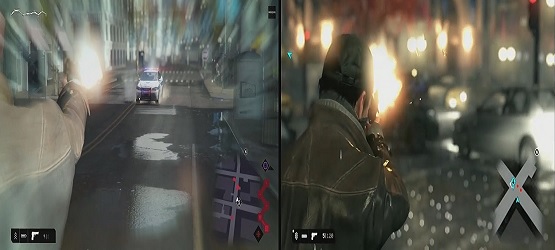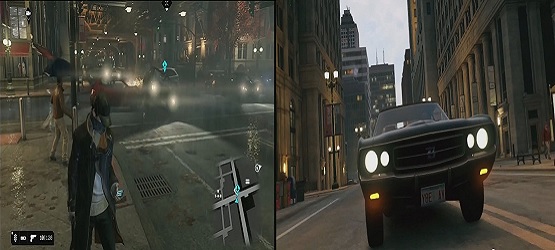If there’s one thing I’ve learned from a lot of the video game demos shown at various E3 expos, it’s to never pre-order a game based on what you’ve seen. This might sound like a daft suggestion considering that an overwhelming majority of people already know that there’s a difference between a game being run on a developer kit and a game being played on an actual console. But there’s more to it than just that. I’ve found that a lot of demos shown at E3 have been damagingly deceptive, not just in terms of graphics and presentation, but also in terms of gameplay.
Before Watch Dogs was even released in May this year, a lot of gaming sites and forums were inundated with comments from people who were concerned by a visibly downgraded product. Most of the criticisms focused on the game’s graphics and presentation, which Ubisoft mainly chose to keep mum about. As a casual gamer who hardly ever obsesses over these factors, I purposely steered away from these comments, hoping to remain unbiased. Guess what? It worked; but only for a while because the more I played the game, the more discontent I became.

After finishing Act 1 (the first nine chapters), I argued that the game had potential; that despite its downgraded graphics and a few gripes, the concept of being able to hack the living daylights out of Chicago felt fresh and unique. To me, that alone made the game worth its price. But having finished Act 2 (twenty-four chapters), I feel like I’ve been ripped off. What I saw at E3 2012 showed smooth combat, fairly realistic driving, and interesting characters. What I got in the end was a game that started off well, but then became a chore to play.
For starters, the combat, especially the gunfight, gradually becomes absolutely ridiculous. In some parts, it’s almost comical. Then, the driving seems to be worse than, if not comparable to, the driving in GTA IV. Don’t get me wrong, I personally didn’t have too much of a problem driving around in Liberty City, but the disappointing thing to note is that this level of gameplay was achieved way back in 2008. Six years later, I would have hoped to get something better than that. Sadly, as much as I’m enjoying the Watch Dogs story mode, the gameplay has made the title a drag to play. Additionally, I find no character worth paying mind to other than our own. I’m willing to forgive the graphical downgrade because E3 2012 wasn’t exactly a next-gen showdown. But it’s hard to forgive the overall package that I paid the full price for.

Watch Dogs isn’t the first game that went down this route, and it probably won’t be the last. I have played a plethora of games that looked like they’d be a blast to play when I saw the demos, but ended up being a buggy, despicable mess. Aliens: Colonial Marines, anyone? What a lot of developers don’t seem to realize is that E3 attracts a large audience from around the world, and it puts them in a unique spotlight. While it isn’t a crime for a game to change during the development process, the hype a good demo creates at such events can pave way for exceptional levels of disappointment if the release version of any given title is of a lower quality. In simple words, E3 isn’t and shouldn’t be a platform to share your dreams if you know deep down that what you’re showing is not exactly achievable. That’s also called deception.

As a consumer, I take the blame for wanting to get my hands on a game after I’ve seen a lush display at an expo. I should know better, right? But I’m also conscious of the fact that developers foolishly believe that a high number of pre-orders or sales — mainly driven by hype – automatically mean that their game has been well-received even when it isn’t. Sure, Assassin’s Creed III broke the pre-orders and sales records set by its predecessors, but the general consensus is that it didn’t reach the benchmark that Assassin’s Creed II or Brotherhood set.

The truth is, developers are neither forced to, nor do they have to show an early footage of any of their games, especially if it’s years before a game is released. I lean towards believing that it’s perfectly possible for developers to show a more realistic demo nearer to the release date so that consumers get to see something that’s as close to the finished version as it can get. Is that an unrealistic demand? I don’t think so. I’m not entirely convinced that the blame solely lies with consumers who buy the game like many suggest. It also lies with the developers who are well-aware of the fact that people may fall for the hype. I personally find that unethical. If there are regulations against false advertising then the video games industry shouldn’t be an exception.
However, in order to be fair, I must say that I find some of the backlash entirely unnecessary. Where the difference between a demo and the final version of a game is miniscule, we need to cut developers some slack. If a game’s demo does a better job at showing smoke coming out of a chimney than a retail copy of the game, it honestly doesn’t warrant furore.
I’d love to hear our readers’ views on the topic. Have you ever felt deceived after basing your decision to purchase a game on a demo?








